Presidential Election 2024: What matters to Indian American Voters in the South?

A cross-section of voters from the community in and around Georgia share their thoughts on who they are voting for and the issues that are most important to them.

When I immigrated from India a decade ago, I couldn’t find another Indian in my big neighborhood in Georgia’s Cobb County. Now I have two on my street. One of them even has— what else—an Indian restaurant nearby. I see Indian moms in sarees out for an evening stroll, their kids participating in Easter and Halloween celebrations. Last year, I heard fireworks on Diwali for the first time. The growing population of Indian Americans is apparent even beyond my immediate neighborhood.
Seeing how vital Indian Americans as a voting bloc in Georgia have become in this presidential race (Please see my article titled, “Why YOUR Vote Could Be the Deciding One!” in this issue), we decided to talk to a broad cross-section of voters from the community to put a finger on what is most important to them.
Immigration
There is palpable unease about the rising rhetoric around immigration. Manish, a sales consultant, feels targeted in this atmosphere. “When Donald Trump calls all immigrants thieves and robbers, he is vilifying me and my family. We have unprecedented levels of hate and divisiveness in the country right now.” This has turned Manish, a long-time Republican, against Trump.
Rishi (name changed upon request to protect anonymity), a business owner who came to the U.S. seeking safety for his family, speaks of feeling unsafe in current times. “I have many good Republican friends, but with Trump’s mindset, it's scary. We risked our lives to come here. And now it feels like our lives are at risk here.”
 Others, mostly voting Republican, do not believe that this rhetoric against illegal immigrants impacts them. Narendra Patel owns popular Indian restaurants in Atlanta and can be seen hard at work on weekends. He is worried about illegal immigration turning the heat on legal migrants. “We worked hard to get here. Illegal immigration makes a mockery of our hard work.”
Others, mostly voting Republican, do not believe that this rhetoric against illegal immigrants impacts them. Narendra Patel owns popular Indian restaurants in Atlanta and can be seen hard at work on weekends. He is worried about illegal immigration turning the heat on legal migrants. “We worked hard to get here. Illegal immigration makes a mockery of our hard work.”
[Left] “We have unprecedented levels of hate and divisiveness in the country right now,” says Manish, a sales consultant about Trump’s anti-immigrant rhetoric. A long-time Republican, this time, his vote is a "protest against Trump."
Illegal immigration is one of the campaign issues for Narender Reddy, who is running for the State Representative position in Georgia State House (Assembly) from District 50 (Johns Creek) on a Republican ticket. Explaining his reason, he says, “Talk to our H1B visa holders, see what long and tough journeys they have made to get here. And then someone comes in illegally from the Southern border. That’s not right.”
Pankti Rogers is a lawyer working in real estate. “Policies should prioritize the rule of law, secure borders, and focus on the needs of our citizens but still welcome those who enter our country legally and contribute to its economic growth.” At the same time, the legal route feels unnavigable due to the extremely long backlog in the immigration process, a subject that has many painful stories of families divided across continents.
 Economy
Economy
Vrunda, mother to two children, is concerned about the price of groceries. “Inflation for everyday prices has really disturbed my monthly budget.” This sentiment is echoed by many other families.
Meanwhile, for business owners like Narendra Patel, the economy is an important issue. “After Covid, things have changed. On one hand, the business has not been back to the same levels, and on the other hand, the inflation is high.” Patel has seen many of his friends lose gas stations, convenience stores, and restaurants in these times. He is worried about the Democrats’ welfare policies. “They are offering freebies and higher wages. They are not thinking of supporting the business community. Businesses are needed to create jobs.” According to him, many of his friends are feeling the heat.
[Right] Veteran political influencer Narender Reddy is running for the State Representative position in Georgia State House (Assembly) from District 50 (Johns Creek) on a Republican ticket.
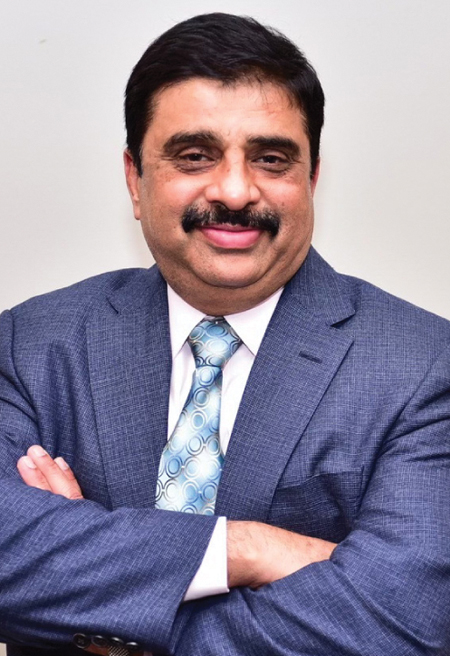 Paresh Patel from North Carolina has retired from his convenience store business and now leases out properties. “Cost of living is going up, taxes are going up. How can one survive? What took us 10 years will take 50 years now.” He says Trump has knowledge of the world and will be good for the U.S. “When Trump was in presidency, the economy was growing until Covid hit. Now the value of our country is going down. America needs Trump to make that change, just as Modi has for India.”
Paresh Patel from North Carolina has retired from his convenience store business and now leases out properties. “Cost of living is going up, taxes are going up. How can one survive? What took us 10 years will take 50 years now.” He says Trump has knowledge of the world and will be good for the U.S. “When Trump was in presidency, the economy was growing until Covid hit. Now the value of our country is going down. America needs Trump to make that change, just as Modi has for India.”
Rishi is concerned about his business too but feels he needs to be safe before he can worry about inflation and taxes. “I tell my friends that we need to be alive to reap business benefits. Already we are seeing restrictions on voter registrations. What is the guarantee that our rights will be protected? Even though I sometimes feel Democrats give away too much, at least the money is getting used by people in the country. With Republicans, we will probably be going for some war with taxpayers' money.”
[Left] “We worked hard to get here. Illegal immigration makes a mockery of our hard work.” That, along with his belief that Republicans are better for business, are the reasons restaurateur Narendra Patel’s vote goes to Trump
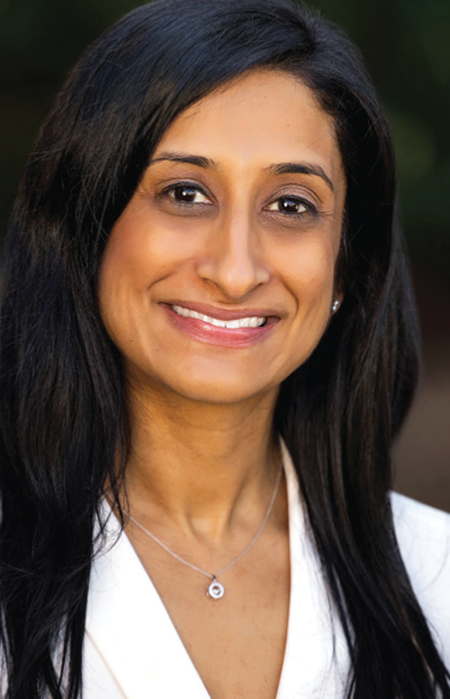
Manish says he is fiscally conservative and socially moderate. Typically, he would have voted Republican, but he can’t see himself voting for Trump. “I would have been happy to vote for someone with integrity like Mike Pence. I was happy to vote for Nikki Haley. We live in such an interconnected world these days, not just with the economy but also with climate. America rose as a power where the world could rely on our word and look up to us. The President sets the tone for how the country acts. And I don’t think Trump sets the proper example.”
Tarun Surti, a socialist entrepreneur from Nashville, Tennessee, has voted for both parties on local, state, and federal levels based on candidates. “As an entrepreneur, I support capitalism; and being born in India, I also support socialist policies to minimize the unfair treatment of underprivileged populations. But my biggest concern right now is the hateful divide in America—the results of lies fabricated by Trump and his allies. It was not like this earlier. Inflation is tied to labor shortage, which is tied to border crossings. America needs to find a practical solution.”
[Right] Pankti Rogers, a lawyer working in real estate, says, “Policies should prioritize the rule of law, secure borders, and focus on the needs of our citizens but still welcome those who enter our country legally and contribute to its economic growth.”
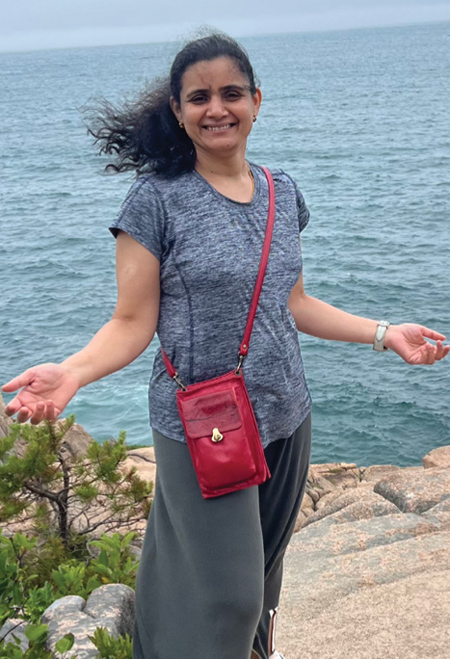
Vijay Vemulapalli, an active community member, doesn’t think Republicans have a better economic strategy. “Biden administration has been doing a good job trying to do a soft landing on inflation.” Although he has always voted Democrat, he wouldn’t mind if a Republican like Mitt Romney were to be president. “The kind of politics that Trump is involved in should not have a place in any party. This is extremely dangerous to the country. I think that American democracy is stronger than what Trump can dismantle, but the general discourse is unfortunate.”
It is something that Reddy has heard on the campaign trail. “People tell me they like his policies but not his rhetoric. I understand that. Many in the Republican party, including me, feel the same way.” He points out that he is campaigning for himself, not Trump. However, he does not think that Trump’s rhetoric creates the feeling of unsafety that some voters have talked about. In fact, public safety is one of the campaign issues for him. “Gun control is a separate issue. It is a constitutional right, and people who misuse it need to be punished. For changes in laws, both parties should come together and work on it.”
[Left] For Vrunda, who has two school-going children, gun violence is a top-of-the-mind issue. “School should be a safe place of learning. But now it is a nightmare for every parent.”
 Representation
Representation
For most men in the Indian American community, it is a vote for or against Trump rather than a vote for Kamala Harris—a sharp contrast from women who have embraced Harris as a representative figure. Sonjui Kumar, lawyer and voting advocate, says, “This gender gap is visible nationwide and South Asian women
are turning out in large numbers to support Harris.” In fact, South Asian Women for Harris was one of the first Zoom calls that Harris had at the start of her campaign, and it was attended by over 9000 women.
Usree Bhattacharya, an associate professor at UGA, also feels a deep connection with Harris that has only become stronger because of the many coincidences. “Like Kamala Harris's mom, I too went to Berkeley. Like her, I too met my husband through political engagement. And like Kamala Harris, my husband is Jewish and I'm Hindu.” Because of all these reasons, she sees her multicultural, multilingual American experience reflected in Harris.
[Right] Tarun, a socialistic entrepreneur, with his daughter Zarna. “Women's rights are very important. As an entrepreneur, I support capitalism; and being born in India, I also support socialist policies to minimize the unfair treatment of underprivileged populations."

Speaking about hearing “Kamala” reverberating through the crowd at a rally she attended, Bhattacharya, whose grandmother's name is also Kamala, says, “That moment filled me with so much joy, pride, and a sense of belonging. I think her story is, in so many ways, our story, the story of possibility in America, the possibility of being able to imagine a better self for ourselves.”
Ashwin Ramaswamy, a 24-year-old running for Georgia State Senate District 48 (parts of northern Atlanta suburbs) on the Democratic ticket, points to Harris’s appeal. “In the South Asian community, we all know an auntie like her. I think a lot of South Asian women see themselves in her—her story is not very different from theirs. But it’s more than heritage. It’s also shared values.”
[Left] “Democratic principles speak to me more. The party has embraced Indian Americans for many years. It’s not an electoral strategy. Obama and then Biden made many high-level presidential appointments,” says Sonjui Kumar, an attorney and a voting advocate.

Moni Basu, a journalist and a professor at UGA, agrees. “I am not a proponent of identity politics, but it would feel really good to see a woman of color, especially one who shares my heritage, take control of the White House. So, I am supporting Lotus for POTUS. I want a president in the White House who unites us and has empathy. One who is calm and collected in crisis. One who represents the United States with dignity and class. That person is most definitely not Donald Trump. I care about the economy, reproductive rights, climate change, gun violence, and all the other issues that Americans care about. I believe Kamala Harris will take us forward in the right direction.”
[Right] Speaking about hearing “Kamala” reverberating through the crowd at a rally she attended, Usree Bhattacharya, whose grandmother's name is also Kamala, says, “That moment filled me with so much joy, pride, and a sense of belonging. I think her story is, in so many ways, our story, the story of possibility in America.”
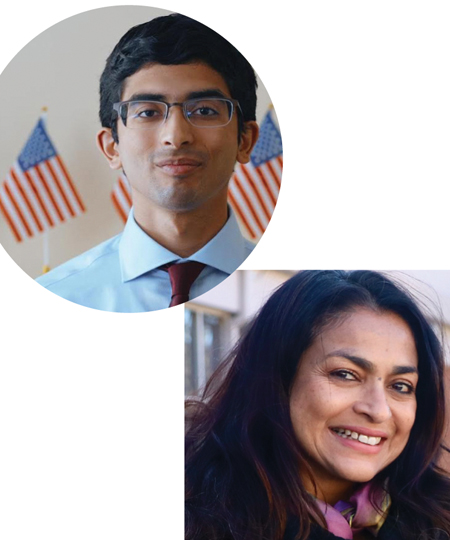
Kumar met Harris when she ran for DA in San Francisco. “I have always loved her and thought she was a great candidate. I love Tim Walz just as much. Democratic principles speak to me more. The party has embraced Indian Americans for many years. It’s not an electoral strategy. Obama and then Biden made many high-level presidential appointments.” She says about Trump, “We now have someone who doesn’t believe in the Constitution or the laws of the land.”
[Left Top] 24-year-old Ashwin Ramaswamy is running for Georgia State Senate District 48 (parts of northern Atlanta suburbs) on the Democratic ticket.
[Left Bottom] “I want a president in the White House who unites us and has empathy. One who is calm and collected in crisis. One who represents the United States with dignity and class. That person is most definitely not Donald Trump,” says Moni Basu, a journalist and a professor at UGA.

[Right] Amod Sureka is the lead for Georgia Chapter for "They See Blue," an organization focused on political advocacy for Democrats.
Trump continues to be the defining figure in this election cycle—for many, it’s a vote for or against Trump rather than a resounding yes for Harris. Even though Kamala Harris’s representation has many Indian American voters excited, there are many—both women and men—who feel she hasn’t embraced her Indian heritage. Amod Sureka is a member of the marketing and communications team for "They See Blue," an organization focused on political advocacy for Democrats. Speaking about the unlikely alliance between Trump and Hindu Americans, he says, “Many Hindu Americans believe that the Republican party has a better connection with PM Modi, and that’s what drives their vote.” On the Democratic side, there is concern that America has fallen behind on freedom. Indian Americans should know that they have fewer freedoms than when they came in and also in comparison with India." The memory of Trump’s “Howdy Modi” events is still fresh for many. “They seem to have forgotten Modi congratulating Kamala in his address to the congress on his last visit,” says Kumar.
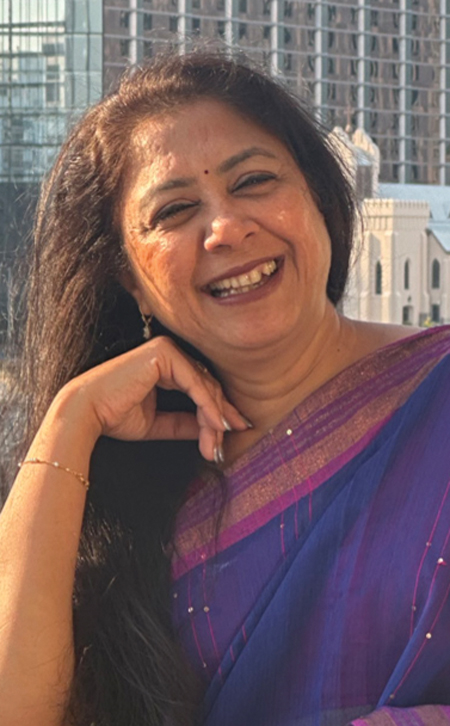 Reproductive rights
Reproductive rights
There is a lot of emotional energy around reproductive rights amongst women, and Indian American women voters feel affected by this too.
Bhattacharya shares her journey. “We had seven miscarriages in the course of arriving at my daughter. Most of those losses were early. One of them happened in Georgia before the Heartbeat Bill went in. If I had a miscarriage today and needed medical care, I would not be able to have it.” She goes quiet before speaking again. “There is a lot of heartbreak in the backdrop of anyone having a miscarriage. To turn away people and to police those who are experiencing some of the most heartbreaking moments is nothing short of cruel. This thinking that somehow women's bodies need to be controlled is regressive and misogynistic.”
Nandita Godbole, a writer, is mother to a young daughter. “As her mom, I worry that my daughter’s rights about what her family looks like are being determined for her without her consent. That’s why this election and the participation of young adults matters even more than before.”
[Left] Nandita Godbole, a writer and mother to a young daughter says, “I worry that my daughter’s rights about what her family looks like are being determined for her without her consent.”
Dr. Gulshan Harjee is well-known in the community for her charity work in healthcare. “In my profession, we focus on prevention. My first instinct by training and as a human is to help. I cannot imagine leaving anyone unattended and I can say the same for others in healthcare. And yet, they are being forced into making these difficult decisions.”
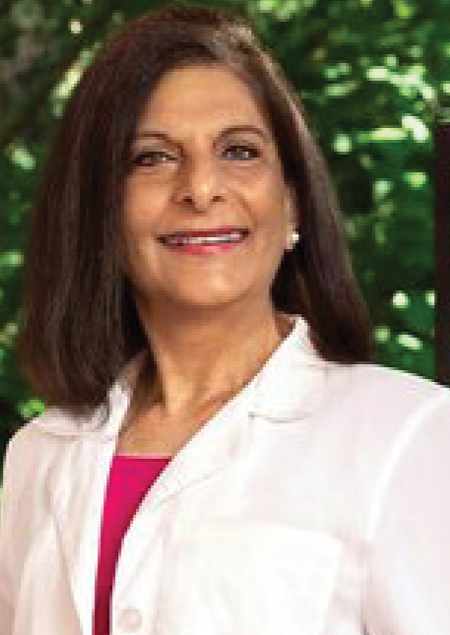 Gun safety
Gun safety
Georgia has some of the weakest gun safety laws which have continued to regress in the past few years. At the time of writing this, four have died in a high school shooting in Winder, Georgia, last week.
Tanmay Singh, a high school graduate, has been struggling with the trauma of being caught in two shooting scares at school. “The second time it happened, I was alone in the corridor when they closed all the classrooms. I banged on every door, but they remained shut.” With the shooter right outside, it could have turned disastrous very quickly.
[Right] Dr. Gulshan Harjee worries that healthcare providers are forced to make difficult decisions because of Georgia’s rigid abortion laws. “In my profession, we focus on prevention. My first instinct by training and as a human is to help. I cannot imagine leaving anyone unattended.”
It is top-of-the-mind for Vrunda who has two school-going children. “I worry about them all the time. School should be a safe place of learning. But now it is a nightmare for every parent.” More and more parents are thinking of homeschooling their kids because of the gun scare.
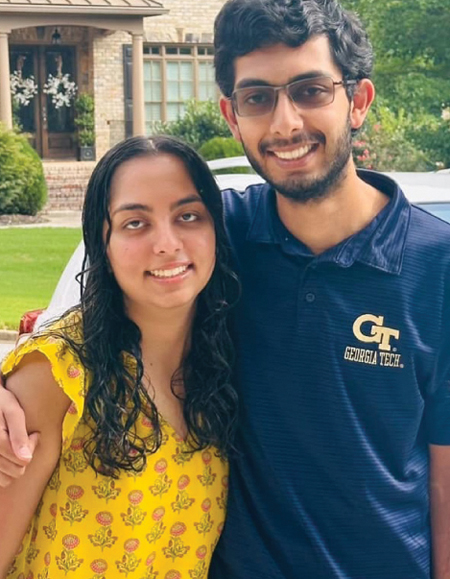 As Ramaswamy talks about making gun safety a priority, he brings up a personal incident. “I remember I was in middle school when someone had brought a gun to school. Kids growing up now don’t know a time when this was not a threat.”
As Ramaswamy talks about making gun safety a priority, he brings up a personal incident. “I remember I was in middle school when someone had brought a gun to school. Kids growing up now don’t know a time when this was not a threat.”
Harjee lost her husband in a gun shooting 25 years ago. “My children go through life without their father. I live my life without my husband. We go through baptisms and celebrations without him. The legislators are funded by the gun lobby. We and our children are not important to them. So, what will it take for them to implement gun safety laws? Lincoln died, Kennedy died, Trump survived a bullet shot at him a few weeks ago. What more will it take?”
[Left] Siblings Shreya and Anmol Prakash, both students at Georgia Tech. Shreya is concerned that “Doctors are unwilling to provide [abortion], a medical service, because they are unsure of the guidelines.” For Anmol, climate change is an important issue. “I feel that not enough is being done to reduce our carbon emissions.”

[Right] Tanmay Singh, a high school graduate, has been struggling with the trauma of being caught in two shooting scares at school. “The second time it happened, I was alone in the corridor when they closed all the classrooms. I banged on every door, but they remained shut.”
Gaza
Among the uncommitted voters, there is a faction for whom Gaza is the most important issue, as it is for Syed Hasan Kamal of the Aligarh Muslim University (AMU) Association. He says, “The politician who restores peace and harmony will get my vote.” Uma Palam Pulendran, activist and public health researcher, says she votes Democratic but identifies as independent (philosophically). “I want Harris to win, but I am not blinded by partisanship. Gaza upsets me. You cannot undermine human rights and democracy. We, the progressive base, are the backbone of Harris’s support, but she is not making it easy. She can do better. Being better than Trump is not a compliment.” Prem Parekh, a graduate from Georgia State University, echoes that sentiment. “The Democratic Party is just unable to stand up unequivocally against the genocide happening in Gaza. They won’t even call it a genocide! Even when she talks about working on a deal, she continues to arm Israel. It’s sad to see the head of the party compromised like that.”
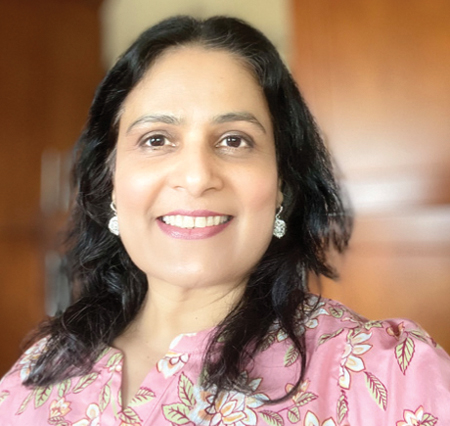
[Left] Uma Palam Pulendran, activist and public health researcher, says, “I want Harris to win, but I am not blinded by partisanship. Gaza upsets me. You cannot undermine human rights and democracy. We, the progressive base, are the backbone of Harris’s support, but she is not making it easy.”
Youth
A new energy is coursing through young and first-time voters. Georgia is seeing many new voter registrations. Indian Americans are a younger and growing demographic in the state.
Social media, memes, and endorsements from youth icons like Taylor Swift have all added to an elect-fest that has the young voters enthused. Kumar is seeing more young volunteers and advocates joining the mobilization efforts. “Having Harris on the ticket has really sparked a new energy.”
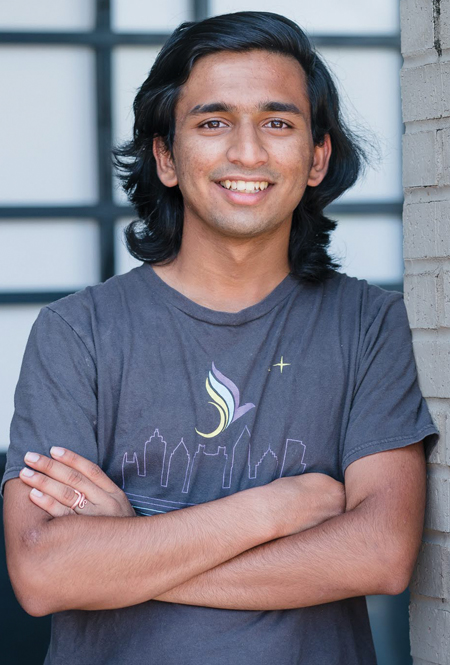 Rohan Soni, a senior at Columbia University, has founded Streamline 2024. It’s a database that makes the policies of both parties accessible, including a simplification of Project 2025, Donald Trump's Agenda 47 platform, the Harris Walz platform, and the DNC platform. “This election is extremely consequential for the future of our country, and our goal is to make sure that anyone who goes to the ballot is equipped to make an informed decision. Electing Donald Trump will drastically change this country, and we must do what we can to stop him.”
Rohan Soni, a senior at Columbia University, has founded Streamline 2024. It’s a database that makes the policies of both parties accessible, including a simplification of Project 2025, Donald Trump's Agenda 47 platform, the Harris Walz platform, and the DNC platform. “This election is extremely consequential for the future of our country, and our goal is to make sure that anyone who goes to the ballot is equipped to make an informed decision. Electing Donald Trump will drastically change this country, and we must do what we can to stop him.”
Having faced the trauma of a school shooting so closely, Tanmay says gun safety laws are extremely important to him. “It is scary to think that guns are being carried into stores so openly. Also: there has to be something questionable about the fact that at my age, someone can’t drink but they can carry a gun.” Shreya Prakash, a student at Georgia Tech, is also concerned about gun control. “All the incidents of shooting have made me worried about my safety on campus. I feel that there should be more guidelines in place to restrict easy access to guns.“
[Right] Prem Parekh, a graduate from Georgia State University, echoes that sentiment. “The Democratic Party is just unable to stand up unequivocally against the genocide happening in Gaza. They won’t even call it a genocide!”
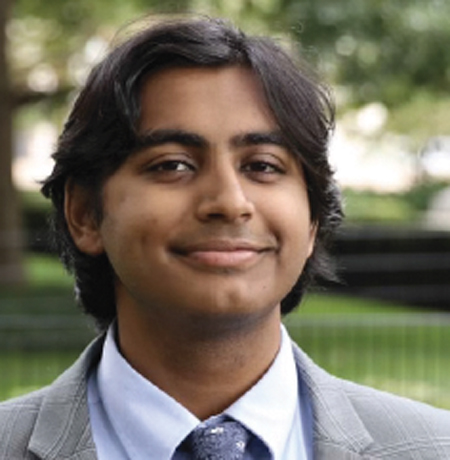 Reproductive rights are also important to Shreya, who says it is her right to choose whether or not she would like to have an abortion. “Doctors are unwilling to provide this medical service because they are unsure of the guidelines. Mothers cannot receive necessary care for themselves in such cases, increasing the number of deaths during childbirth.” This is an issue that also concerns her brother Anmol Prakash as well as Tanmay. At the time of writing this, Georgia is grappling with the death of Amber Thurman who died after she was denied medical care due to the abortion ban.
Reproductive rights are also important to Shreya, who says it is her right to choose whether or not she would like to have an abortion. “Doctors are unwilling to provide this medical service because they are unsure of the guidelines. Mothers cannot receive necessary care for themselves in such cases, increasing the number of deaths during childbirth.” This is an issue that also concerns her brother Anmol Prakash as well as Tanmay. At the time of writing this, Georgia is grappling with the death of Amber Thurman who died after she was denied medical care due to the abortion ban.
While these young voters are engaged, they don’t agree with a lot of policies on either side. They plan to vote for Harris if only in comparison with Trump.
[Left] Rohan Soni, a senior at Columbia University, is the founder of Streamline 2024, a database that makes the policies of both parties accessible. He believes, “This election is extremely consequential for the future of our country, and our goal is to make sure that anyone who goes to the ballot is equipped to make an informed decision.”
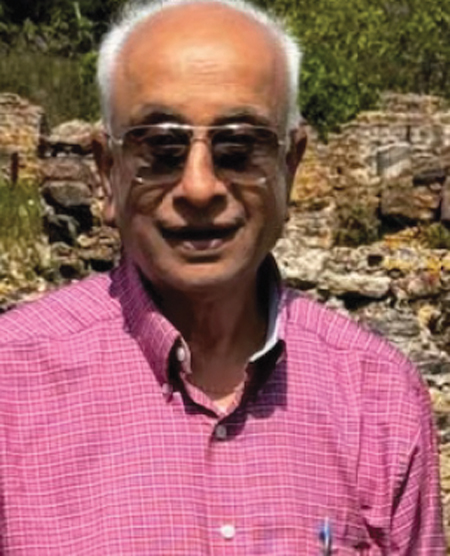 Anmol, who is also a student at Georgia Tech, says his vote is also tied to the issue of climate change. “I feel that not enough is being done to reduce our carbon emissions. The EV adoption has been very slow because there are larger infrastructure issues such as the build-up of a charger network and the limited capacity of our aging electrical grid.”
Anmol, who is also a student at Georgia Tech, says his vote is also tied to the issue of climate change. “I feel that not enough is being done to reduce our carbon emissions. The EV adoption has been very slow because there are larger infrastructure issues such as the build-up of a charger network and the limited capacity of our aging electrical grid.”
Dr. Jay Desai, who has retired from his practice, also puts climate change as one of the top issues for him in this election cycle. He plans to vote Democratic while his daughter, Pankti, leans Republican. The opposite is true in Narendra Patel’s family where he will be voting Republican, and his children lean Democratic.
Interestingly, in a polarized environment outside, these intergenerational changes in voting patterns offer hope for independent-thinking, inclusive spaces in families where these conversations can take place at the kitchen table.
[Right] Climate change is the top issue for Dr. Jay Desai, who retired as an internal medicine physician. He plans to vote Democratic while his daughter, Pankti, leans Republican.
In this atmosphere of deep distrust, Manish’s thoughts urge everyone to return to reason. “We've lost that tone and tenor in this country where I can disagree about policy without making it personal. It has come to a point where if I don't agree with you, I can't be your friend anymore, I can't have an intelligent
conversation with you. That, to me, is just very disappointing, Our government works when Democrats and Republicans come together intellectually and discuss an idea or a policy. We don’t see that anymore and that’s part of the paralysis we are seeing in the government.”

Pooja Garg is Deputy Editor for Khabar magazine. An award-winning journalist and USC Annenberg Fellow for Writing and Community Storytelling, Pooja has worked as Principal Correspondent with India Today and Delhi Bureau Chief for CIO magazine. Founder of the South Asian Collective and The Woman Inc., she is the editor of From My Window anthology. Write to her at pooja@khabar.com.
This article was produced as part of the 2024 Elections Reporting Mentorship Program, organized by the Center for Community Media at the Craig Newmark Graduate School of Journalism at the City University of New York (CUNY).
Enjoyed reading Khabar magazine? Subscribe to Khabar and get a full digital copy of this Indian-American community magazine.
blog comments powered by Disqus










